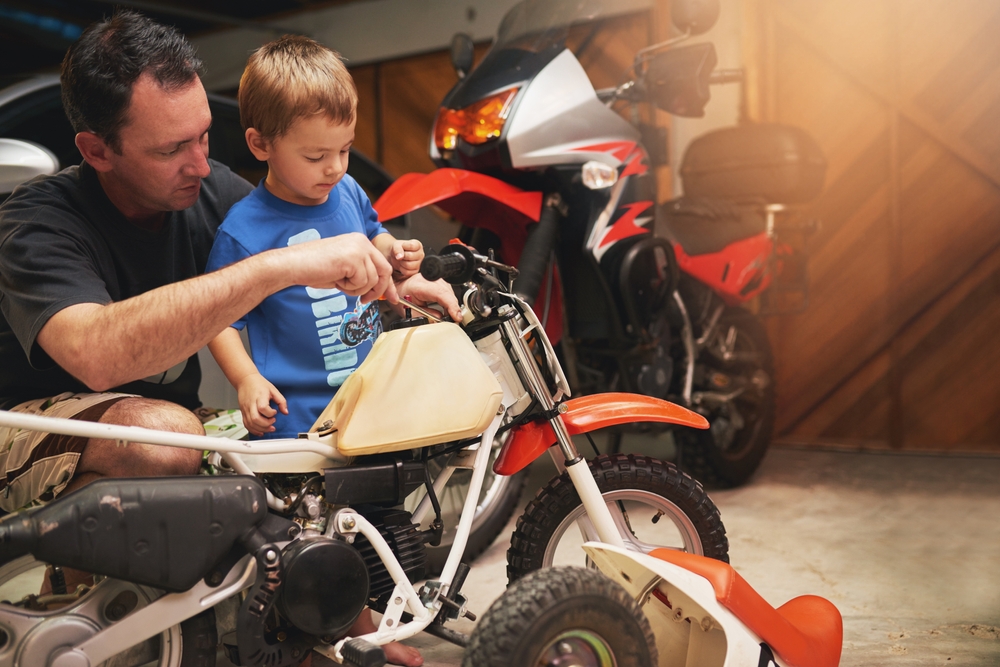
Your garage might seem harmless as a place to park your car, store tools, or work on small projects. But in reality, it’s one of the most dangerous areas in your home. Every year, thousands of Americans end up in the emergency room because of accidents that happen in garages. From chemical mishaps to poor organization, simple oversights can lead to serious injuries. That said, here are six relatively common garage mistakes that could potentially land you in the emergency room.
1. Stacking Heavy Items Too High
It might seem convenient to pile boxes and tools upward to save space, but that vertical storage can quickly become a hazard. Heavy bins or spare tires stacked above eye level can tumble down and cause head or back injuries. Many ER visits linked to garages start with something falling unexpectedly. The safest solution is to keep heavy items low and only store lightweight objects on high shelves. Investing in sturdy shelving and securing tall items can make a huge difference in overall garage safety.
2. Improperly Stored Chemicals and Paints
Most garages double as storage for cleaning supplies, paints, pesticides, and car fluids, and that mix can be a ticking time bomb. Flammable or toxic chemicals stored near a heat source or without proper ventilation can cause fires or poisonings. Mixing old containers or keeping unlabeled substances adds to the risk. To maintain garage safety, always store chemicals in original containers with clear labels and keep them out of direct sunlight or heat. A small metal storage cabinet designed for flammables is a smart, inexpensive investment.
3. Using the Wrong Extension Cords or Outlets
Garage tools often draw more power than people realize, and using the wrong extension cord can quickly lead to overheating or electrical fires. Extension cords rated for indoor use or light-duty electronics can’t handle heavy-duty tools or compressors. This mistake is one of the most common garage safety hazards because it’s easy to overlook. Always use outdoor-rated, grounded cords designed for power tools, and avoid daisy-chaining multiple cords together. For long-term setups, consider installing a dedicated outlet to reduce the load on your circuits.
4. Neglecting Proper Ventilation When Running Engines
Running your car or power tools inside the garage with the door closed is one of the most dangerous habits you can have. Carbon monoxide buildup can turn deadly in minutes, even if the garage door is partially open. Many people underestimate how fast toxic fumes can accumulate, leading to dizziness, fainting, or worse. Good garage safety means keeping doors fully open when using gas-powered equipment, and ideally, doing so outdoors. A small carbon monoxide detector can be a literal lifesaver in this often-overlooked space.
5. Letting Clutter Take Over the Floor
A cluttered garage isn’t just an eyesore. It’s a minefield waiting to trip you up. Tools, cords, and loose items scattered across the floor cause countless slip and fall injuries each year. These accidents often lead to sprains, fractures, and ER visits that could’ve been avoided with a few minutes of tidying. Garage safety starts with organization. Keep walkways clear, hang tools on wall racks, and label storage bins for easy access. You’ll not only prevent injuries but also find what you need faster when working on projects.
6. Skipping Safety Gear During DIY Projects
Many garage injuries happen not because of bad luck, but because someone “didn’t think they needed” safety gear. Working without goggles, gloves, or hearing protection may seem harmless. That is, until something backfires, slips, or sparks. Flying debris, loud machinery, and sharp tools all pose serious risks. Every garage safety plan should include basic protective equipment within reach. The small inconvenience of putting on gear is nothing compared to a trip to the ER for an avoidable injury.
The Garage Can Be Safe If You Treat It Like a Workshop
Your garage isn’t just storage space. It’s an active workspace filled with potential hazards. Treating it like a professional environment means taking precautions seriously, even for quick tasks. Proper lighting, ventilation, and organization are the foundation of lasting garage safety. Whether you’re changing oil or reorganizing shelves, slow down and think about the risks before you act. With a few small changes, your garage can become a place of productivity, not peril.
What’s one garage safety habit you’ve been meaning to fix? Share your thoughts in the comments below.
What to Read Next
- 10 Garage Mistakes That Destroy Expensive Tools Overnight
- 7 Garage Tools Every Serious Car Guy Needs in His Arsenal
- 10 Innocent Garage Habits That Burn Down Homes Overnight
- 7 Garage Setups That Are Quietly Violating Fire Code
- 8 Garage Tools Men Buy That Almost Never Get Used
The post 6 Common Garage Mistakes That Could Send You to the ER appeared first on Clever Dude Personal Finance & Money.



.png?w=600)



